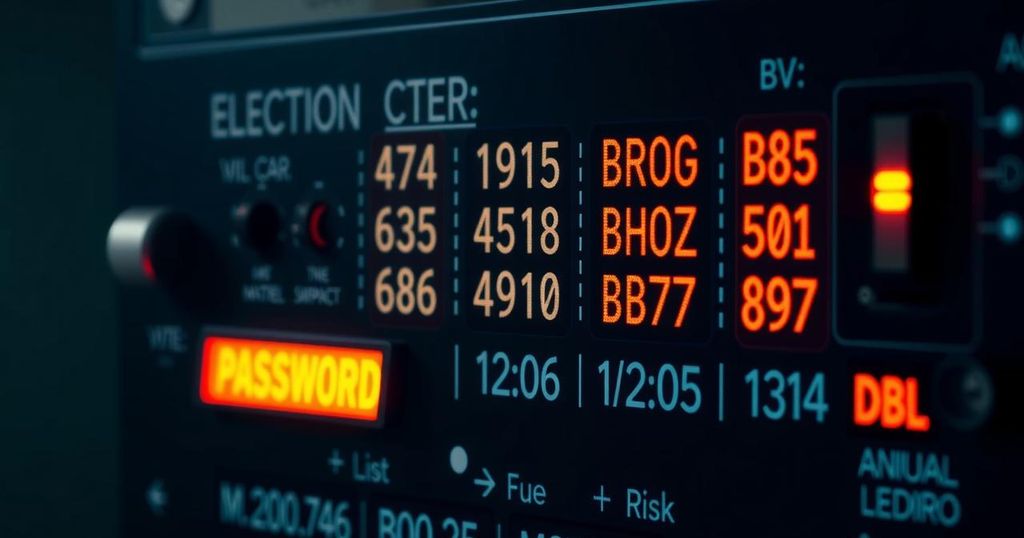The Colorado Secretary of State’s office has declared that the leak of partial passwords related to election machines poses no threat to the electoral process. The passwords were inadvertently revealed in a spreadsheet, but the machines are secured and not connected to the internet, thus ensuring their security.
The Colorado Secretary of State’s office has stated that the accidental leak of partial passwords for election machines poses no risk to the integrity of the voting system. The breach occurred when a spreadsheet on the Secretary of State’s website inadvertently revealed the passwords when accessed by users. According to Secretary of State representatives, the election machines are not connected to the internet, necessitate an additional layer of passwords for access, and are maintained under tight surveillance in secured locations. The issue came to light through a letter from Hope Scheppelman, vice chair of the Colorado Republican Party, who highlighted that these passwords have existed in public view since at least August.
In recent years, the security of election systems has come under increased scrutiny, especially following various incidents of election interference and cyber threats. The integrity of voting machines is paramount to maintaining public trust in electoral processes. This incident highlights the importance of stringent security measures and constant monitoring to prevent unauthorized access to sensitive information related to elections. The Colorado Secretary of State’s assertion that the machines are offline and secure attempts to alleviate concerns regarding potential risks stemming from the revealed passwords.
In conclusion, while the partial breach of election machine passwords in Colorado raised initial concerns, state officials have confirmed that the security of the election system remains intact. Measures such as offline status, additional password requirements, and constant surveillance are in place to safeguard the electoral process. As such, the state emphasizes that there is no imminent threat to the security of its elections.
Original Source: www.nytimes.com







